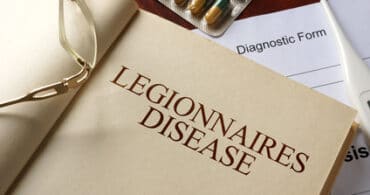Exposed: The Lesser Known Costs of Being a Landlord
Landlords new to the buy to let environment are wise to take a step back and think about the true costs involved in letting a property, some of which may not naturally spring to mind when working out ultimate yield. Here we uncover some of the hidden costs of being a landlord, a worthwhile read if you are considering getting into the property market.
Landlords new to the buy to let environment are wise to take a step back and think about the true costs involved in letting a property, some of which may not naturally spring to mind when working out ultimate yield. Here we uncover some of the hidden costs of being a landlord, a worthwhile read if you are considering getting into the property market.
Whilst the likes of mortgage repayments, repair costs and property management fees may be obvious outgoings for a landlord, there are various other expenses that landlords need to budget for if they are going to calculate a realistic yield.
Gas safety
Over three quarters of homes still rely on gas heating in 2021, so it stands to reason that most landlords will have some form of gas safety regulations with which to comply.
Under the Gas Safety (Installation and Use) Regulations 1998, landlords have a responsibility to make sure that all gas equipment supplied is safely installed and maintained by a Gas Safe registered engineer; arrange an annual gas safety check on every gas appliance and flue by a Gas Safe registered engineer, and provide tenants with a copy of the gas safety check record ahead of them moving in, or within 28 days of the check.
The average cost for a gas appliance service and safety certificate at the time of publishing this post is between £35 and £90. Boiler breakdown cover is an additional expense, but one that could potentially save money.
Electrical safety
The Electrical Safety Standards in the Private Rented Sector (England) Regulations 2020 make it mandatory for residential landlords in England to maintain their properties to the specified standards, and to prove compliance.
Landlords have to ensure their privately rented properties meet the 18th Edition of the Wiring Regulations (British Standard 7671) and must produce an Electrical Installation Condition Report (EICR) to prove that all fixed electrical appliances have been inspected and tested as safe by a qualified and competent person. Inspections must be conducted at least every five years, and the current cost at the time of publication is around £200.
Energy efficiency
All landlords of privately rented property must also provide energy efficiency ratings to tenants. These certificates only need be renewed every ten years, but some landlords elect to renew them more often if they have made significant improvements to their properties that have increased the energy efficiency rating.
Energy efficiency is very important to today’s tenants, particularly millennials, and an Energy Performance Certificate (EPC) must be available before any viewings are arranged. So, aside from the costs involved in improving energy efficiency and ensuring your property meets the necessary minimum E-rating, you will also need to factor in around £60-£120 for your EPC.
Landlord licences
Some, but not all, landlords will require a licence to rent. If you are letting an house in multiple occupation (HMO), then you will need a licence to do so, whatever the size of the property.
Selective licensing is something that catches many landlords out. At the time of writing, more than 70 councils in England are able to apply selective licensing, which was introduced with a view to improving rental standards in certain areas. The schemes allows councils to run a ‘fit for purpose’ and ‘proper persons’ test on landlords, and can cost around £400.
Landlord insurance
More a safety measure than a cost, landlord insurance provides peace of mind. Whilst tenants are responsible for their own contents insurance, it is the landlord’s responsibility to put buildings insurance in place.
Landlords are also wise to cover their own contents such as carpets, appliances, beds and sofas for theft or damage, in particular when renting furnished. Other insurance recommended for landlords includes liability, legal expenses and home emergency cover.
A typical landlord insurance policy costs around £200 per year, depending on the level of cover.
Income tax
Landlords are required to pay income tax on what is left over after expenses are deducted from rental income. Class 2 National Insurance contributions will also be due if the buy to let venture can be considered a business.
Void periods
You will need to account for periods when your property is not tenanted and you have no rental income. You will still need to pay all your bills during this time, so you’ll need to allow a contingency, or choose a guaranteed rent solution that covers you for these times.
Here are some tips to help you avoid rental void periods.
Furnishings and appliances
Landlords who let their properties on a furnished basis need to allow not just for supplying furnishings, but also for maintaining and replacing them regularly. All furnishings supplied for private rentals must meet the Furniture & Furnishings (Fire) (Safety) Regulations 1988 (as amended).
homes2let: the upfront way to manage your rental property, with no hidden costs
It is clear to see that there are plenty of unavoidable and potentially unseen costs involved in being a landlord. But there is a way to streamline these costs, whilst enjoying the benefit of guaranteed rent at the same time.
The homes2let guaranteed rent scheme secures rental payments, even during void periods, and takes all the hassle of property management off your shoulders too, all with no costs or fees to pay.
Why not contact our expert team to discover how we can make your life as a landlord that bit easier, and clearer when it comes to costs?
Related Insights

How Landlords Can Offer Assistance to Tenants During the Pandemic
As our coronavirus series for landlords continues, we’re moving on to look at how landlords and property management companies can assist their tenants during the pandemic. From payment holidays to rent reductions and steering on third party financial support, there is plenty that can be done for mutual benefit.

Can I Live in my Buy-to-Let Property?
A common question asked by landlords is, can I live in my buy-to-let property? The short answer is that, if there is a mortgage on the property, taken out on a buy-to-let basis, then this will prohibit borrowers from taking residence. Let’s take a closer look at the finer detail of how the rules on living in buy-to-let property actually work.

A Landlord’s Guide to Protecting Tenants Against Legionnaire’s Disease
All landlords have legal responsibilities to ensure the health and safety of their tenants. Under these responsibilities, Legionnaire’s disease ranks as one of the most significant health concerns that must be considered when letting to tenants. Here’s why it’s vital to be aware of what Legionnaire’s disease is, why it is harmful, and how to check for and prevent it.







